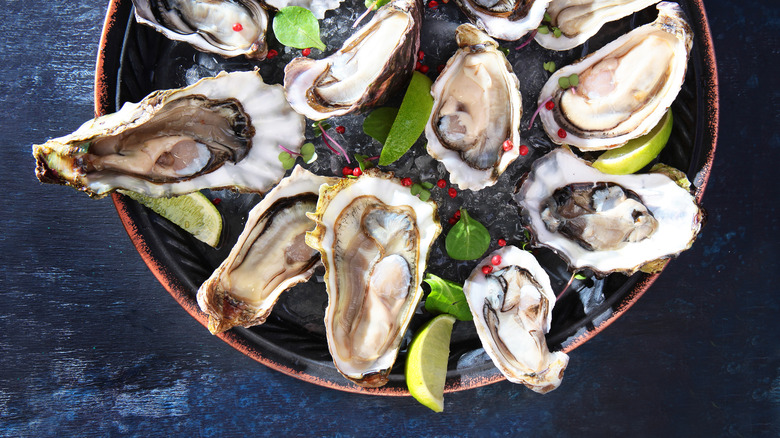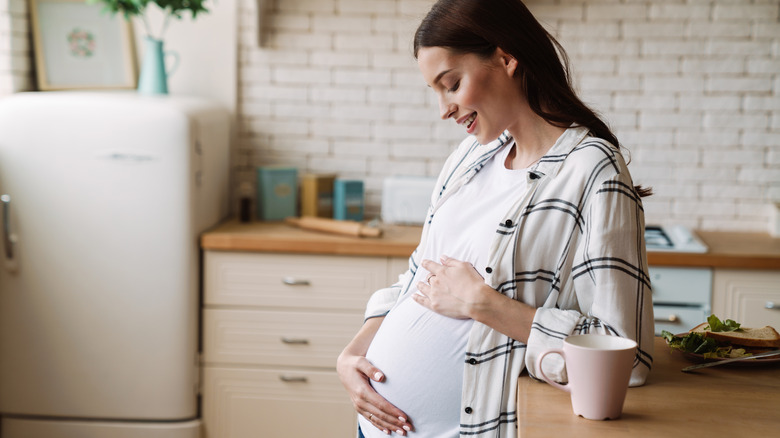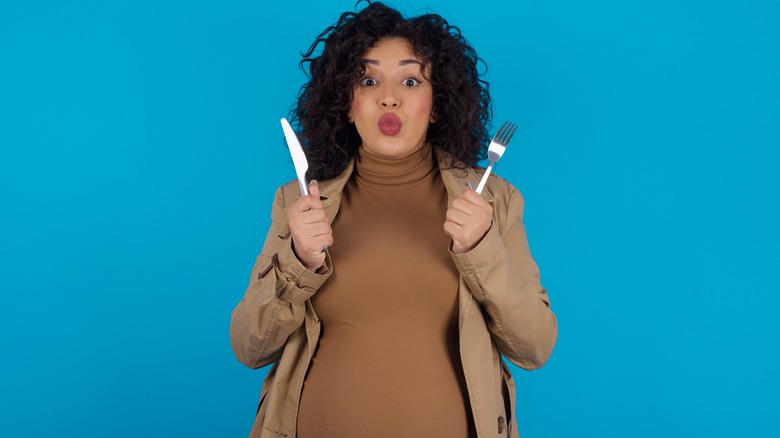Can You Eat Oysters While Pregnant?
If you are newly pregnant, you have likely been asked what you are craving. According to Verywell Family, cravings often occur in pregnancy due to the shift in hormones, a need for comfort, the change in your senses (many pregnant people suddenly have an intense sense of smell), and an increased need in nutrients like iron.
Some of the most common pregnancy cravings include fruits, sweets like ice cream and chocolate, salty foods like french fries or chips, cheeses and dairy products, and sour items like pickles and yes, even fish, per On Health. A craving for salty fish is said to be due to the drop in sodium pregnant people experience during their first trimester. Family Education also says that as your blood volume increases during pregnancy, your body will crave more sodium. But before you treat those cravings by reaching for a dozen oysters, it's important to know what type of fish is safe and what types you should avoid during pregnancy.
Pregnant people can eat oysters, as long as they are cooked
According to Fresh Fish Daily, oysters have a salty taste, making them a favorite for those craving salts during pregnancy. Plus, raw oysters contain a lot of great stuff, including vitamin B12, vitamin D, iron, copper, and zinc, and is a great option for helping brain health and avoiding bone loss, per WedMD.
Unfortunately, when it comes to pregnancy, one rule of thumb is to always avoid raw fish. According to Baby Center, it is not safe to eat any type of raw foods while pregnant, including raw oysters. When an oyster isn't cooked, any bacteria it may have is not cooked off, making it more likely to contain harmful substances that can hurt you and your baby. Without any way to know if an oyster has bacteria, it's best to eliminate raw items from your diet completely. But, if you are truly craving an oyster, you can absolutely still eat one — just make sure it's cooked. In fact, when cooked to the right temperature, oysters are considered a great option for pregnant people because they are low in mercury, are a great source of protein, and contain essential nutrients.
When it comes to seafood, pregnant people should be careful
Seafood is a great option for pregnant people, but it can also pose a big risk. If you are a regular seafood eater, it's not just oysters you need to be careful of — all types of fish and shellfish can create complications for pregnant people if not prepared correctly. According to Mayo Clinic, one of the biggest culprits of pregnancy complications is high levels of mercury. To avoid any type of mercury positioning, it is recommended that pregnant women completely avoid bigeye tuna, king mackerel, marlin, orange roughy, swordfish, shark, and tilefish.
But, outside of those items, it's actually recommended to consume about two or three servings of fish per week. In fact, according to WebMD, eating low mercury seafood can help prevent postpartum depression and lower the risk of heart disease in kids. There's even been studies that point to higher IQ levels and better behavior in kids whose parents ate a good amount of fish during their pregnancy. So what exactly is safe? Healthline recommends sticking to fish like salmon, tilapia, shrimp, and crab and ensuring that any fish you eat is cooked and prepared correctly.


